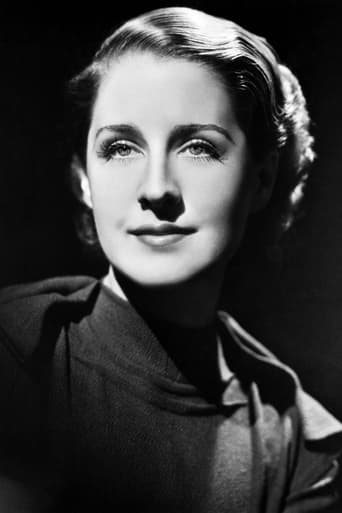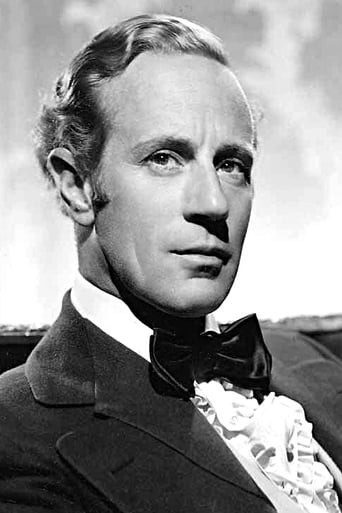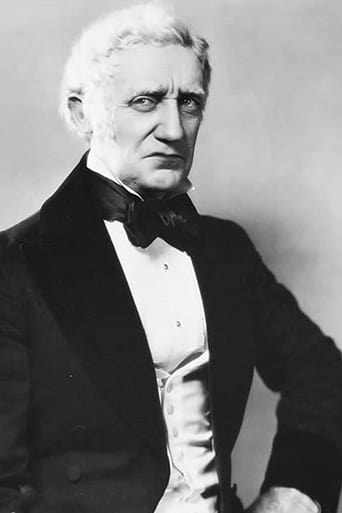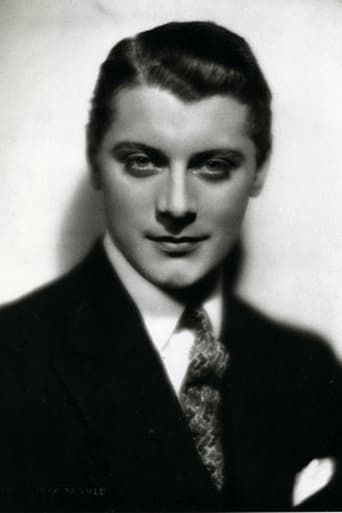Smartorhypo
Highly Overrated But Still Good
Platicsco
Good story, Not enough for a whole film
Marva
It is an exhilarating, distressing, funny and profound film, with one of the more memorable film scores in years,
Billy Ollie
Through painfully honest and emotional moments, the movie becomes irresistibly relatable
ptimmermantoronto
Minor spoiler ahead. This is a classic weepy, derived from a play. I am not very fond of Fredric March (who wrecked Anna Karenina) or Norma Shearer (a 30s taste if there ever was one), but will watch anything with Leslie Howard in it (even though he spends most of the movie in old man makeup). It isn't that good of a movie, really, though there are some interesting camera moments here and there. The writing is pretty clunky. The most compelling thing is the startling scene between the two lovers, on the verge of his leaving for the front in World War I, where they actually have a serious conversation about sleeping together before he goes in case he dies, and she is at least as eager as he is -- a symptom of a just barely prior to code film. The film buffers it with vague stuff about going to Dover and getting married overnight, etc., but the real issue is blatantly obvious.
bkoganbing
The horror of World War I, a conflict with global dimensions had never been experienced by man before. With so many people in the participating countries suffering losses of family members there was a big spiritual movement among the older generation at the same time the Jazz Age and the Roaring Twenties was celebrated by the younger brothers and sisters of fallen soldiers.One of the best examples of this is the play Smilin' Through which was written and performed by Jane Cowl on Broadway. It's unfortunate that she was not chosen to do the lead in the first sound version on film, but Norma Shearer is a more than adequate substitute.The play Smilin' Through ran for 175 performances in the 1919-20 season on Broadway and then was made into a silent film feature with Norma Talmadge in the lead. It concerns the lost love of a man and how even with the greatest of spiritual barriers between them, there is a connection even through fifty years of separation.The man in the film is Leslie Howard who years after his bride was killed on their wedding day, gets charge of her niece when her parents are killed. The niece when she grows up and the bride in both ghostly and flashback sequences is played by Shearer.The third lead in this film is Fredric March who plays father and son. As the son who was brought up in America by his mother, he never knew his father, he's come over to Great Britain to enlist in the army of the land of his forefathers. He and Shearer take to one another, but Howard is furious at the idea.He's got reasons. March as the father is the maniacally jealous former suitor of the aunt who was killed. In fact he's the one who did it and left Howard a lonely grieving man for generations.Both March and Shearer are great in their parts. Especially March who is called on to play two very different kinds of men and being the superb actor he was, plays them both so well. As for Leslie Howard, he's in a typical Leslie Howard part, charming with a suffocating air of sadness about him, and so very British, the typical Englishman as they see themselves. Norma's part as the aunt calls for her to sing the song Smilin' Through and of course it's dubbed. There was no need of that in the third version with Jeanette MacDonald who in that version sings a nice medley of period songs. Jeanette's version does unfavorably compare with Norma's, but definitely not in the singing department. I'd like to see the Norma Talmadge silent if it still exists.You would have to made of stone like those great lions at the New York Public Library not to be moved by Smilin' Through. Given the times, this play and this film had a ready audience who wanted so desperately to believe that they would in fact be reunited with loved ones.
Michael Bo
Sir John (Leslie Howard) is devastated and disgusted as his niece Kathleen (Norma Shearer), a young woman living with him since her parents died in her infancy, falls in love with Kenneth (Fredric March), the son of the man who, in a jealous rage, killed Sir John's bride to be on their wedding day. As Kenneth is about to join his company at the front in World War I, Kathleen is torn between her filial duty towards her uncle and her love for Kenneth.Sidney Franklin's film is the quintessential tearjerker, one that I have dreamed of watching all my adult life, and tonight I finally managed. Not many films outlast those sorts of expectations, I found recently that 'Sevent Heaven' was relatively feeble-minded, not the film I had been looking forward to.'Smilin' Through' triumphs though, soaringly so. The film is not only sumptuous in decor and cinematography, but has a real heart and real intelligence. I loved the way that almost every scene takes place in a garden with burgeoning flora, drooping flowers, heavy with romantic regret and sexual portent. One could almost smell the dizzy perfume of the plants. And I admired the way that Sidney Franklin distinguishes so clearly and yet not demonstratively between the way that young love professes itself in the 1860's, the time of John's and Moonyeen's courtship, and the war years with Kathleen's and Ken's romance. Franklin, in his direction, subtly underlines the tender dewy-eyed romanticism of the old days, "misty, water-colored mem'ries" indeed, with Kathleen perpetually wearing her wedding gown, even in her scenes as a ghost. And in the modern story we have an altogether more practical couple, acting in the context of a world war, with the far-away guns and canons sending rumblings through the village, sending windows and panes rattling. Kathleen in the modern story is more earthy and doesn't, in this pre-Code Hollywood picture, disguise how she is longing for her sexual union with Ken: "By the time I'm through with you, you won't be able to fight anyway", she claims.The acting is a chapter unto itself. I was never a fan of Leslie Howard's, and although it must be said that his part is probably the least interesting in the film, he conveys an endearing boyishness in the 1860's scenes, easy-going and infectious. Fredric March strikes up a marvelous rapport with Norma Shearer, sending off sparks of a loose energy that seem almost improvised, certainly captivating. Their scenes today should even today serve as must-see footage for acting students. March shows glimpses of the impressive character actor he was to become, and Shearer is luminous and entirely lovable, great performances.The perfect genre piece, destined to give you the most delicious heartache.
Pat-54
A big hit at the time of it's release, it was nominated for an Academy Award for best picture of that year. It still holds up, thanks to the timeless performance of Norma Shearer.




